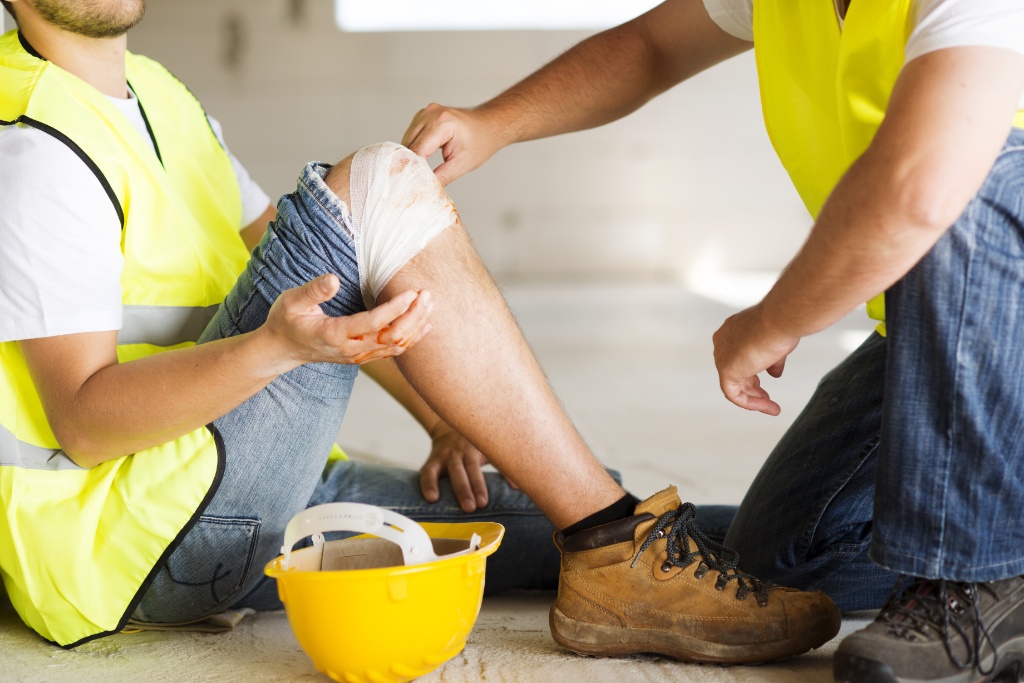July 31, 2018 | accident benefits Claims
The Role of Homeowner’s Insurance in a Personal Injury Claim
Table of Contents
If you’re injured in a car accident in Ontario for which another person was at fault, you may already realize that you are entitled to Statutory Accident Benefits under your own auto insurance policy and third-party liability coverage under the at-fault driver’s policy. But what happens if you have a personal injury claim against another person that has nothing to do with automobiles? What kind of insurance coverage exists in such cases?
The answer depends on the circumstances of your case, but one possibility may surprise you: Ontarians are often protected against third-party liability claims through their homeowner’s insurance policy.
That’s right: In addition to protecting your home and personal property against damage and theft, your home insurance also protects you against personal liability, even for your conduct outside the home.
- Homeowner’s insurance covers not only damage to your home and personal property, but also your liability for others’ personal injury claims against you.
- A defendant’s homeowner’s insurance can be an important source of recovery for those injured by him or her.
- Read your homeowner’s insurance policy carefully to understand what kind of third-party liability coverage it provides.
What’s Covered By Homeowner’s Insurance?
The Insurance Bureau of Canada, an industry association for insurance companies, classifies homeowners’ insurance policies into four categories depending on the level or type of coverage provided for a person’s home and personal property:
- Comprehensive insurance. Comprehensive insurance covers your home and the personal property within it against all risks of direct physical loss. (Despite its name, comprehensive insurance doesn’t literally cover anything and everything. You still need to read your policy to determine what coverage is excluded.)
- Broad insurance. Broad insurance is like comprehensive insurance for your home, but it only covers your personal property against named perils.
- Basic insurance. Basic insurance protects your home and personal property only against the perils named in your policy.
- No Frills. Finally, a no-frills policy may be available for homes that don’t satisfy the ordinary standards for homeowners’ insurance (e.g., because of a physical defect.)
But different insurers and different insurance policies provide different coverage. You should carefully review your insurance policy, including its coverage and exclusion provisions, to determine how the policy protects you.
Homeowner’s Insurance And Personal Liability Coverage
Most people are not surprised to learn that their homeowner’s policy covers personal injuries that occur inside their home (like those subject to the Occupiers’ Liability Act). But what many homeowners do not realize is that the personal liability coverage of homeowners’ insurance policies also applies outside the home.
For example, imagine you are on vacation and someone injures him or herself by tripping over your poorly placed suitcase. Or suppose you run into somebody at the park and knock him or her over. Or what if your dog bites someone after slipping away from you on a walk? Your homeowner’s insurance policy may protect you in each of these circumstances.
Of course, as with property coverage, the precise details of your coverage for personal liability depend on the wording of your policy. Some policies are more generous than others, either because the insurance company genuinely values its customers or (what is more likely) because it didn’t think through its wording.
Homeowner’s Insurance For Workplace Accidents?
That brings us to an interesting recent case: Aviva Insurance Co. v. Intact Insurance Co. This case explores when a homeowner’s policy could apply to an accident that occurred in the workplace, albeit after hours when nobody is working.
In Aviva, Sanjay Patel was having a “jam session” with musician friends at his engineering firm after hours. One friend, Stephen Novak, fell off a ladder and was injured. Novak issued a statement of claim naming Patel, his engineering firm, and the company that owned the building (which was also owned by Patel) as defendants.
There were three insurance policies potentially liable to pay for Novak’s injuries:
- Royal Sun Alliance (RSA) provided commercial liability coverage for Patel’s engineering firm.
- Aviva insured the company that owned the building where Patel’s firm was located.
- Intact was Patel’s homeowner’s insurance company.
RSA and Aviva jointly paid for Patel’s defence. Intact’s policy said that its coverage would be “excess” coverage if another insurance policy applied. Excess insurers generally don’t participate in defending a claim or pay out until the primary insurance coverage is exhausted. So, seeing two other insurers handle Patel’s defence, Intact decided it didn’t need to.
RSA and Aviva settled with Novak following mediation, agreeing that the building owner, engineering firm, and Patel were each 1/3 liable for Novak’s total damages. Intact refused to participate in the mediation and to pay for Patel’s 1/3 personal liability. As a result, Aviva and RSA paid for that in addition to their own shares, and Aviva sought reimbursement from Intact.
After analyzing the policy language of all three insurance policies, the court sided with Aviva. Intact’s excess-insurance provision only applied if another policy provided the same coverage, but neither RSA nor Aviva did so. Those policies were commercial policies that covered Patel in his corporate capacity; only Intact provided coverage in his personal capacity.
The Importance Of Homeowners’ Insurance In A Personal Injury Claim
Homeowner’s insurance can play a crucial role in Ontario tort claims, both by protecting the insured against significant personal liability and making sure that an injured third party can obtain compensation for his or her injuries.
But as the Aviva case demonstrates, it isn’t always obvious what policies apply in a case. Sometimes it takes some creative thinking and a careful investigation to determine what your options are.
If you’ve been injured as the result of another person’s negligence, whether in an automobile accident or otherwise, contact the personal injury lawyers of Preszler Injury Lawyers for a free consultation. We will investigate your claim, help you determine what insurance policies may be available to compensate you, and pursue justice in and out of court.
Blog Categories
More accident benefits Topics
Here’s more information on accident benefits related topics that we think you might find helpful.

premises liability
|
March 19, 2025
Holiday Parties: Your Legal Obligations as a Host
Since the Supreme Court of Canada’s decision in Menow v. Jordan House LTD, 1974 SCR 239, it has been established that commercial hosts (ie. bars…

personal injury
|
January 23, 2024
Injured as a Worker in Ontario? A WSIB Claim Isn’t Necessarily Your Best— Or Only— Option
In Ontario, the compensation of workers who sustain injuries or illnesses in the course of their employment is governed by the Workplace Safety and Insurance…

personal injury
|
December 7, 2023
Does a Child Have the Right to Sue for Personal Injury?
As much as parents and guardians do everything they can to keep children safe and protected from dangerous situations, there are occasions when a child…
